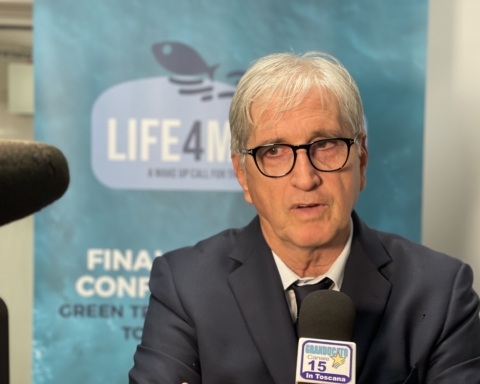A new Port Network Authority may soon see the light of day. Not in Italy but in Europe, in the heart of the Old Continent.
Antwerp and Zeebrugge are, in fact, considering the possibility of creating a single entity, renamed Port of Antwerp-Bruges. The unification process, subject to the approval by the Competition Authorities, could be finalized within a year. The negotiations, according to the presidents of the two Port Authorities, are at an advanced stage.
The two ports are just 100 km from each other and together could become one of the most important European container ports, with a total throughput of 278 million tonnes of cargo and 13.8 million TEUs a year.
The two port cities themselves are behind the merger. Containers handled by Antwerp were up 6.8% in 2019, to 11.9 million TEUs, while the smaller port of Zeebrugge handled 1.8 million TEUs. Rotterdam, the largest port on the Old Continent, handled 14.8 million TEUs.
In addition, the port of Antwerp has a strong break bulk traffic tradition, while Zeebrugge is a leading port in the ro-ro traffic and LNG transport sector. According to both parties, the merger would allow the new Port Network to respond faster to the latest trends developing in the energy transition, innovation and digitalization fields.
“By joining forces, we are on the way to becoming Europe’s global port,” said Antwerp Port Authority president Annick De Ridder. “The ports of Zeebrugge and Antwerp are, to a large extent, complementary. Working together will make us more resilient to external changes.”
Likewise, Dirk De fauw, president of Zeebrugge Port Authority, said that If their ports join forces, they will be able to handle more goods and do it better.
The new super authority would see De Ridder and De fauw take on the roles of president and vice president, respectively, with Antwerp Port Authority’s Chief Executive, Jacques Vandermeiren, poised to serve as the organization’s CEO.
In a Linkedin post, ITMMA University professor Theo Notteboom said that “the inevitable has been decided: The port authorities of Antwerp and Zeebrugge have announced they are starting the merger. Port mergers are a clear trend in the region: some years ago, the cross-border North Sea Port was created out of the ports of Ghent, Terneuzen and Flushing”. He added that, more recently, Le Havre, Rouen and Paris in France announced their intention to merge into a new entity, called Haropa, which will see the light this summer.
According to maritime lawyer Davide Santini “the news of the merger underlines the tendency of northern ports to work in synergy. This involves the concentration and merger of Port Authorities. In particular, between Antwerp and Zeebrugge in Belgium and between Le Havre, Rouen and Paris in France with a view to improving efficiency and increasing critical mass.”
It is no coincidence that back in 2009, Theo Notteboom himself, together with Peter W. De Langen of the University of Eindhoven, published a study entitled “Different Geographical and Functional Levels of Port Competition in Europe”, in which he underlined the need to study new development strategies that would favour transversal economic growth policies through promoting a liaison between public and private sectors within a macro-regional territorial context (the two experts used the term “multi-port gateway regions”).
The study was often referred to by Giuliano Gallanti, when, as president of Livorno Port Authority, he spoke at international port conferences: “The geographical position of a country, however strategic it may be, no longer assures a port the loyalty of shipping companies,” said the port lawyer. “This is no longer the case today. A port that hopes to attract mega-carriers and develop its own traffic must first know how to position itself as part of an efficient intermodal hub or integrated logistics area.”
To put it simply: it no longer makes sense to talk about competition between ports, but between supply chains. Will Italy be able to learn from the Belgian lesson? Mr. Santini invites the legislator to develop a serious reflection on the issue: “We could start thinking about the fact that 16 port networks may be too many for our country and that there are too many differences between each network and each port. The synergy of certain entities is limited to geographical boundaries drawn on the map.”
Translation by Giles Foster




